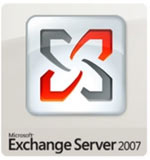NHSmail migration to Exchange deferred
- 18 September 2008
 NHS Connecting for Health has written to strategic health authorities to tell them that NHSmail’s planned migration to the Microsoft Exchange platform is being deferred.
NHS Connecting for Health has written to strategic health authorities to tell them that NHSmail’s planned migration to the Microsoft Exchange platform is being deferred.
In a “dear colleague” letter, Will Moss, programme head of NHSmail, says migrations will now start on 9 January, after the Christmas and New Year break. In a call to E-Health Insider, he said he was confident the new date would be met, because testing had identified a specific problem that the project knows how to solve.
“Exchange has tested out at 30,000 users per server, no problems,” he said. “But the access infrastructure has not got to the level we expect.
“While we are confident that the number of users we have got now would have a good experience, we cannot be confident that the many new people who will be getting the service will have a good experience. And rather than give people a duff experience on day one, we have decided to defer.”
Moss stressed that no confidentiality issues had been identified with the access infrastructure. However, he said testing had revealed user experience issues. “Access might be slow, or take several attempts,” he said.
“However, in Donald Rumsfeld’s slightly odd phrase, this is not an unknown unknown. We know about it. We know what to do about it [and] that is why we can be confident about the date given.”
Moss said all parties involved in the project had agreed to defer and that the major cost would be running the testing team for an additional three months.
The NHS Information Authority originally awarded a £90m contract to Electronic Data Systems for a web-based NHSmail email service. In 2004, CfH handed this to Cable and Wireless, due to low levels of adoption.
In July last year, it announced that it would switch NHSmail from its current Mirapoint email platform to Microsoft Exchange 2007. Migration was due to start at the end of this month.
CfH has argued that users will see a significant improvement in functionality from the move and has been planning a campaign to drive usage of the secure service, which Moss hopes to make the core default secure messaging service for all 800,000 NHS staff who use email.
“We have started the process of telling heavy use organisations – that is organisations that use NHSmail a lot or exclusively – about the deferment,” said Moss. “So far, people have said they would rather have a good service late than a poor one on time. I haven’t yet spoken to people coming onto the service, but I am sure they will say the same thing.”
Moss told EHI that no accounts older than 13 months old will be moved to the new platform, but the plan is to migrate around 300,000 accounts. This is almost double the number of active users claimed for the service at the start of the year.




